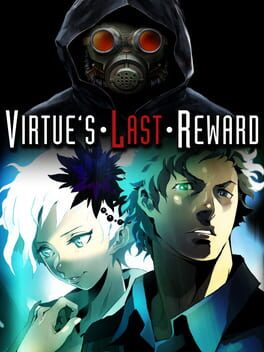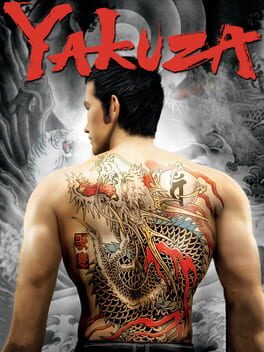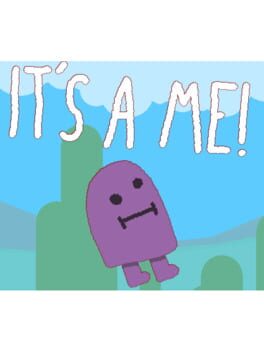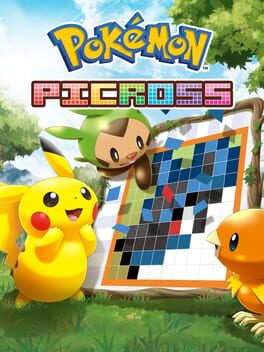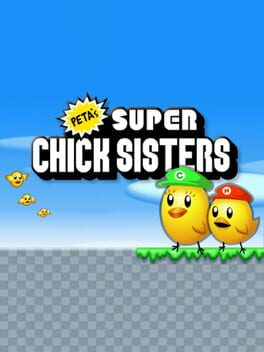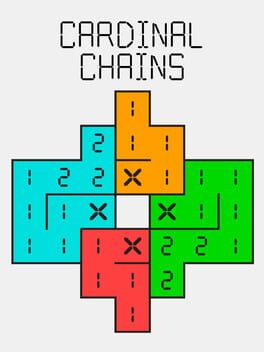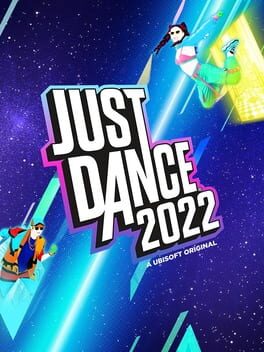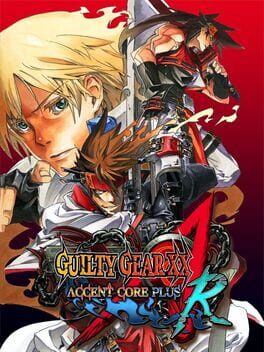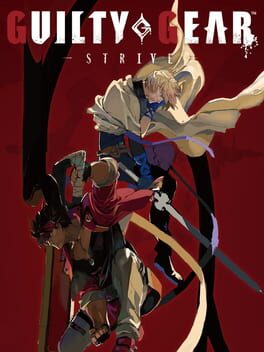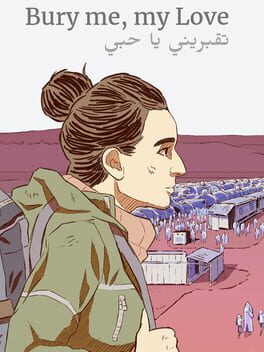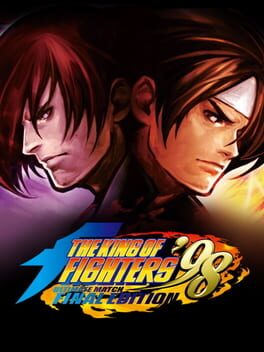Tauranoro
This review contains spoilers
Until an hour ago I thought Virtue's Last Reward was about as good as a sequel to 999 could aspire to be. The magic of the first game, the tricks and the spark that fueled it could really only carry it for a single entry. Now that I've just reached the ending of this game, I'm assured that turning 9 Hours 9 Persons 9 Doors into a franchise was a massive mistake. All because of VLR's ending. Or more accurately, its lack thereof.
999 worked not just because of its brilliance in game design and in how the platform of the ds enhanced the storytelling, but because it was expansive enough to clear up its biggest mysteries while maintaining the restraint to leave enough mysteries and unknown variables.
A sequel not just in terms of themes, gameplay or gimmicks but also in terms of storytelling has to take Schrödinger's cat out of the box and dissect it in front of us, the players, especially for fans of the previous one who want to know what those familiar (or not so familiar) faces are doing in their second show.
The result is a game that, while not at all lacking in substance, spends all of its time warming up for a final sprint, leading up to a final leap that doesn't actually come. At least, not until you buy the next entry in the Zero Escape Trilogy! Zero Time Dilemma! Drama! Action! Mystery! Don't you want to know how the story ends???
"History repeats itself, first as a stone cold banger of a vn, second as the parody of itself" -2Pac
999 worked not just because of its brilliance in game design and in how the platform of the ds enhanced the storytelling, but because it was expansive enough to clear up its biggest mysteries while maintaining the restraint to leave enough mysteries and unknown variables.
A sequel not just in terms of themes, gameplay or gimmicks but also in terms of storytelling has to take Schrödinger's cat out of the box and dissect it in front of us, the players, especially for fans of the previous one who want to know what those familiar (or not so familiar) faces are doing in their second show.
The result is a game that, while not at all lacking in substance, spends all of its time warming up for a final sprint, leading up to a final leap that doesn't actually come. At least, not until you buy the next entry in the Zero Escape Trilogy! Zero Time Dilemma! Drama! Action! Mystery! Don't you want to know how the story ends???
"History repeats itself, first as a stone cold banger of a vn, second as the parody of itself" -2Pac
2005
After not touching the series for over a year, stomping through good ol' Kamurocho just felt right. It's especially appropriate to do so with the first ever title in the franchise. As a veteran of the series, it's striking just how many things the team got right on their first try. Kiryu's style is here in its most basic form, yet extremely satisfying, despite the jankiness, some of which not even the later titles managed to shed. Most importantly, the series' heart is here, its lust for life and joy of new experiences already present.
It's not flawless, as noted with the not-so-stellar combat, the english dub adds a b-movie feel (charm, even?) which often takes out of the scene; in Nishiki's case it tackles you from the top of the Millennium Tower straight into Gachimuchi. The "Ten years in the joint made you a fucking pussy" line is delivered with a tone not too dissimilar to what you might hear on an adult video.
That said, I cannot be mad at this game. Despite its hiccups it's elevated in many regards. The essence of the city, the people who inhabit it, their lives, their tribulations and triumphs, the music that fills your ears whenever a fight breaks out, and the heartful story: that of a man of two halves, ruthless gangster and kind soul, a chimera who has to fight harder than everyone to get what he wants, ending up with a bittersweet taste in his mouth when everything's done.
Any Yakuza/RGG fan owes it to themselves to play the original, especially now that the Yakuza: Restored project is complete. The series was just as soulful in 2005 as it is today; go see for yourself. As the game would say: have no regrets!
It's not flawless, as noted with the not-so-stellar combat, the english dub adds a b-movie feel (charm, even?) which often takes out of the scene; in Nishiki's case it tackles you from the top of the Millennium Tower straight into Gachimuchi. The "Ten years in the joint made you a fucking pussy" line is delivered with a tone not too dissimilar to what you might hear on an adult video.
That said, I cannot be mad at this game. Despite its hiccups it's elevated in many regards. The essence of the city, the people who inhabit it, their lives, their tribulations and triumphs, the music that fills your ears whenever a fight breaks out, and the heartful story: that of a man of two halves, ruthless gangster and kind soul, a chimera who has to fight harder than everyone to get what he wants, ending up with a bittersweet taste in his mouth when everything's done.
Any Yakuza/RGG fan owes it to themselves to play the original, especially now that the Yakuza: Restored project is complete. The series was just as soulful in 2005 as it is today; go see for yourself. As the game would say: have no regrets!
2022
2019
This review contains spoilers
I really enjoyed my time with Persona 5 Royal, time spent over two full playthroughs (one with the base version ending, the other with the royal ending), clocking in at a staggering 180 hours in total. It gave me a newfound appreciation for JRPGs, a genre I thought I simply didn't like. A few days after finishing it I tried Strikers, hoping that by virtue of it being an action game I'd have just as much fun with it. I ended up dropping it after a couple attempts, disappointed by the uninteresting story and the chaotic gameplay. This, combined with not finding another game to fixate on, led me to think quite a bit about P5R, eventually coming to the conclusion that, personally I don't find the narrative to be nearly as impactful as it had the potential to.
Part 1: Take your heart
P5R managed to make me play a JRPG from beginning to end, something that older and more revered games like Final Fantasy X ans Chrono Trigger couldn't manage. While I could say it did so with its strong narrative hook or the persona collecting system, the honest truth is that the game is piss easy. I can only recall two parts in the main story I found truly difficult, my NG exploration of Kamoshida's palace and the Okumura boss fight. While I have no shame in admitting I had to use a guide in the latter case, both were exhilarating moments, where planning your route and picking your next move felt truly important. What's truly special is that I dropped both FF-X and Chrono Trigger during what I felt were horribly unfair boss fights (they weren't, I'm just a scrub), something at first which I felt was true for Okumura as well. But when the strategy Icopied came up with worked, as I witnessed the evil CEO being brought down, I found myself laying in a pool of my own sweat, fumes exhaling from my every pore in a state of pure bliss; right then, something clicked in my brain, a thought emerged in my mind: "I fucking get JRPGs now, holy cow".
So that obviously meant I had become an adrenaline junkie, someone who would find ways to destroy the optional bosses too to chase that high, no matter how hard they were touted to be, right? Pfff, I wish, but since the game is long enough as it is, I honestly didn't want to excruciatingly plan and reorganize my entire persona roster in order to kill a couple of little girls.
Another reason which elevates the game is its presentation in battles, giving each clash a sense of urgency during small fight and scale in the large scale ones. I feel it's important to discuss it because it's also effective at heightening emotion during dialogue and story events, managing to mask (heehee) the plot's overall slow pace.
Part 2: Why not hoist the flag?
While the pace might be slow, I think you'll find it surprisingly breezy as long as you’re willing to take the story on its own terms, “living” day-by-day with its characters, with most events leading into each other naturally. Having downtime and taking things at your own pace feels amazing.
The story starts strong and Kamoshida’s palace is probably the highpoint, one of the few parts of the story I have next to no problems with. Madarame’s arc is also one of the better ones, although it’s here that a few cracks start to show. See, one of the themes explicitly tackled by the game is changing society for the better. Now, Madarame had it coming, what with the rampant and systemic student abuse; the Phantom Thieves undoubtly did a good action by punishing the fraud and rescuing Yusuke from a broken home. The real problem arises when none of the team members ever stops for a second to ask why Madarame, Kamoshida (or any other villain for that matter) were ever allowed to thrive in the toxic environment that their position afforded them. This stings especially when larger implications such as the morality of the team’s actions being put into question by Akechi and Ann; not to mention that these arguments can be rebuked with the simple fact that most palace owners act like they're bad guys straight out of a Saturday morning cartoon.
While Kamoshida was a monster, the conspiratorial silence imposed by the structure of the school is left untouched after his confession. We even see during Ryuji’s social link that a new mini-tyrant has taken the reins of the afterschool sports clubs. Thankfully he’s exposed by Ryuji and Joker, but if it this easy for any shitty person to take control of prestigious positions with only a select few being able to stop them, what’s the point in fighting just them when the real issue is an institution allowing this revolving door of abusers? Besides, that is far from the only questionable aspect of school; time and time again, we see teachers like Kamoshida and the vice principal reprimanding students by threatening to withold their admission letters to college, turning them into a tool to effectively hold the students' future hostage. Why are such practices never even put into discussion, only meekly accepted?
Still, the early arcs can be excused (and have in fact a more believable narrative) because the Phanton Thieves are rookies, still lacking the experience and the big picture vision to realize the deeper workings of their world. Although this excuse slowly loses credibility as the group gains new members, each from a different walk of life.
The first two bosses are far from the only times an individual targeted by the phantom thieves is a member of a larger, destructive structure of power. Kaneshiro was a massive letdown exactly because his arc misses the entire point regarding the damage which organized crime inflicts on communities. The thing is, I have no problem with the portrayal of Kaneshiro, but with how nothing fundamentally changes after his defeat. He’s taken into custody, we can probably assume his criminal family will be disbanded, with its members being also put in prison or going off the grid; we can also assume the drug deals in Shibuya will stop and the children involved will be allowed to stop without fear of repercussion, but that’s probably it. Nothing but the restoration of the status quo, now with more hype for the future endeavors of the Phantom Thieves. Again, a good deed, but most of the consequences I wrote are logical deductions I had to come up with myself. Knowing how criminal groups operate, by the end of the month a new burgeoning yakuza family might have sprung up to replace the old one. The larger phenomenom is never contrasted, only its individual representatives are.
Okumura, my favourite boss in the game, suffers from the same problem. All throughout his palace we witness how he only sees his workers and immediate family as dehumanized robots. The dungeoncrawling further reinforces that, using its miniboss structure and the dialogue to display the abuse trickling down the hierarchy of command the way Ronald Reagan preached money would. It also ingeniously employs RPG tropes of timed puzzles and bridges that need to be lowered in order to progress, using them as metaphors for workplace abuse. Despite all that, Persona 5 still refuses to level a systemic critique at how such exploitative spaces are born, claiming it's all due to a combination of monetary debt and daddy issues. Haru’s social link might reassure us that now Okumura Foods is a good company, with a good CEO, but we simply have no way of knowing since Persona 5 seems uninterested in exploring any further ramifications of the old boss’s fall. The game basically asks us to take him at face value. It's so uninterested in fact, there’s even a small scene where Joker and Morgana overhear a conversation between two office workers who share their belief that the Phantom Thieves should punish every company that mistreats its employees. How do they respond? Morgana brushes it off in a single line like it's not their problem.
Once Sae and Shido’s palaces roll around it seems more and more like the Phantom Thieves are incapable of understanding how to actually bring any meaningful change in society. This is where it gets especially infuriating, because there are hints dropped here and there that the problem goes much deeper than corrupt individuals, such as when Akechi explicitely points out that 99% of court cases end in guilty verdicts and that the system is clearly flawed. Yet, despite having basically the reached the finale of the story, the cast still refuses to actually engage in any kind of meaningful discussion about it. In the end, defeating Shido, while once again something good and necessary, simply results in the maintaining of the status quo, the old ruling class staying in power. Nothing fundamentally changes, they just avoided the worst case scenario.
Part 3: Life might change
To be fair, the main reason I believe Persona 5 shies away from these questions is that for most of the bosses, the main characters fight them more because of personal grievances than anything. While this works well story-wise, giving each party member a good reason for joining the team and sticking with it, it ends up eclipsing the larger theme of rebellion and of anyone in the world being able to fight against cruel circumstances. One dungeon where this ends up working to its benefit is Futaba’s Palace, since the more personal and intimate focus allows for a greater focus on the arc’s specific themes without having to necessarily deal with more all-encompassing societal problems.
For the base game's final arc, the story suddenly takes a weird turn, deciding to go 100% supernatural for its ending. After a story that features somewhat grounded and believable characters, having the big reveal be that a lawful evil god was just manipulating the main character for his goals can’t help but feel somewhat out of place. This is also where the game drops most pretentions of its story being about ordinary people standing up for themselves and simply deifies the Phantom Thieves, glorifying them and putting the burden of humanity’s survival on their shoulders. The original ending is satisfying at first glance, but deep down, I feel a sense like things haven’t actually improved. I am especially ambivalent regarding the scene that happens between Sae and Joker on 2/13: on the one hand I do want to read it the way the game wants us to, with society giving back to the wronged after all their struggles, but on the other it feels misguided to leave everything in the hands of the system that put the characters in the difficult situation they were in at the start.
I don’t have much to add when it comes to the arc added by Royal, I simply find it a great addition which does a much better job at dealing with its themes of acceptance of reality much more coherently than the base game does with its own tackling of rebellion, much for the same reason I found the Futaba arc more compelling than the others.
Maybe you find this review to be missing the point of Persona 5 Royal, that the game doesn’t need to talk about its topic in a revolutionary light, and to be honest, that’s quite fair. On a surface level, it works really well as pure entertainment and a fantasy of escape from reality. I’m just a player who finds himself disappointed that a game which takes around one hundred hours per playthrough never bothered to dig deeper into its own themes.
Part 1: Take your heart
P5R managed to make me play a JRPG from beginning to end, something that older and more revered games like Final Fantasy X ans Chrono Trigger couldn't manage. While I could say it did so with its strong narrative hook or the persona collecting system, the honest truth is that the game is piss easy. I can only recall two parts in the main story I found truly difficult, my NG exploration of Kamoshida's palace and the Okumura boss fight. While I have no shame in admitting I had to use a guide in the latter case, both were exhilarating moments, where planning your route and picking your next move felt truly important. What's truly special is that I dropped both FF-X and Chrono Trigger during what I felt were horribly unfair boss fights (they weren't, I'm just a scrub), something at first which I felt was true for Okumura as well. But when the strategy I
So that obviously meant I had become an adrenaline junkie, someone who would find ways to destroy the optional bosses too to chase that high, no matter how hard they were touted to be, right? Pfff, I wish, but since the game is long enough as it is, I honestly didn't want to excruciatingly plan and reorganize my entire persona roster in order to kill a couple of little girls.
Another reason which elevates the game is its presentation in battles, giving each clash a sense of urgency during small fight and scale in the large scale ones. I feel it's important to discuss it because it's also effective at heightening emotion during dialogue and story events, managing to mask (heehee) the plot's overall slow pace.
Part 2: Why not hoist the flag?
While the pace might be slow, I think you'll find it surprisingly breezy as long as you’re willing to take the story on its own terms, “living” day-by-day with its characters, with most events leading into each other naturally. Having downtime and taking things at your own pace feels amazing.
The story starts strong and Kamoshida’s palace is probably the highpoint, one of the few parts of the story I have next to no problems with. Madarame’s arc is also one of the better ones, although it’s here that a few cracks start to show. See, one of the themes explicitly tackled by the game is changing society for the better. Now, Madarame had it coming, what with the rampant and systemic student abuse; the Phantom Thieves undoubtly did a good action by punishing the fraud and rescuing Yusuke from a broken home. The real problem arises when none of the team members ever stops for a second to ask why Madarame, Kamoshida (or any other villain for that matter) were ever allowed to thrive in the toxic environment that their position afforded them. This stings especially when larger implications such as the morality of the team’s actions being put into question by Akechi and Ann; not to mention that these arguments can be rebuked with the simple fact that most palace owners act like they're bad guys straight out of a Saturday morning cartoon.
While Kamoshida was a monster, the conspiratorial silence imposed by the structure of the school is left untouched after his confession. We even see during Ryuji’s social link that a new mini-tyrant has taken the reins of the afterschool sports clubs. Thankfully he’s exposed by Ryuji and Joker, but if it this easy for any shitty person to take control of prestigious positions with only a select few being able to stop them, what’s the point in fighting just them when the real issue is an institution allowing this revolving door of abusers? Besides, that is far from the only questionable aspect of school; time and time again, we see teachers like Kamoshida and the vice principal reprimanding students by threatening to withold their admission letters to college, turning them into a tool to effectively hold the students' future hostage. Why are such practices never even put into discussion, only meekly accepted?
Still, the early arcs can be excused (and have in fact a more believable narrative) because the Phanton Thieves are rookies, still lacking the experience and the big picture vision to realize the deeper workings of their world. Although this excuse slowly loses credibility as the group gains new members, each from a different walk of life.
The first two bosses are far from the only times an individual targeted by the phantom thieves is a member of a larger, destructive structure of power. Kaneshiro was a massive letdown exactly because his arc misses the entire point regarding the damage which organized crime inflicts on communities. The thing is, I have no problem with the portrayal of Kaneshiro, but with how nothing fundamentally changes after his defeat. He’s taken into custody, we can probably assume his criminal family will be disbanded, with its members being also put in prison or going off the grid; we can also assume the drug deals in Shibuya will stop and the children involved will be allowed to stop without fear of repercussion, but that’s probably it. Nothing but the restoration of the status quo, now with more hype for the future endeavors of the Phantom Thieves. Again, a good deed, but most of the consequences I wrote are logical deductions I had to come up with myself. Knowing how criminal groups operate, by the end of the month a new burgeoning yakuza family might have sprung up to replace the old one. The larger phenomenom is never contrasted, only its individual representatives are.
Okumura, my favourite boss in the game, suffers from the same problem. All throughout his palace we witness how he only sees his workers and immediate family as dehumanized robots. The dungeoncrawling further reinforces that, using its miniboss structure and the dialogue to display the abuse trickling down the hierarchy of command the way Ronald Reagan preached money would. It also ingeniously employs RPG tropes of timed puzzles and bridges that need to be lowered in order to progress, using them as metaphors for workplace abuse. Despite all that, Persona 5 still refuses to level a systemic critique at how such exploitative spaces are born, claiming it's all due to a combination of monetary debt and daddy issues. Haru’s social link might reassure us that now Okumura Foods is a good company, with a good CEO, but we simply have no way of knowing since Persona 5 seems uninterested in exploring any further ramifications of the old boss’s fall. The game basically asks us to take him at face value. It's so uninterested in fact, there’s even a small scene where Joker and Morgana overhear a conversation between two office workers who share their belief that the Phantom Thieves should punish every company that mistreats its employees. How do they respond? Morgana brushes it off in a single line like it's not their problem.
Once Sae and Shido’s palaces roll around it seems more and more like the Phantom Thieves are incapable of understanding how to actually bring any meaningful change in society. This is where it gets especially infuriating, because there are hints dropped here and there that the problem goes much deeper than corrupt individuals, such as when Akechi explicitely points out that 99% of court cases end in guilty verdicts and that the system is clearly flawed. Yet, despite having basically the reached the finale of the story, the cast still refuses to actually engage in any kind of meaningful discussion about it. In the end, defeating Shido, while once again something good and necessary, simply results in the maintaining of the status quo, the old ruling class staying in power. Nothing fundamentally changes, they just avoided the worst case scenario.
Part 3: Life might change
To be fair, the main reason I believe Persona 5 shies away from these questions is that for most of the bosses, the main characters fight them more because of personal grievances than anything. While this works well story-wise, giving each party member a good reason for joining the team and sticking with it, it ends up eclipsing the larger theme of rebellion and of anyone in the world being able to fight against cruel circumstances. One dungeon where this ends up working to its benefit is Futaba’s Palace, since the more personal and intimate focus allows for a greater focus on the arc’s specific themes without having to necessarily deal with more all-encompassing societal problems.
For the base game's final arc, the story suddenly takes a weird turn, deciding to go 100% supernatural for its ending. After a story that features somewhat grounded and believable characters, having the big reveal be that a lawful evil god was just manipulating the main character for his goals can’t help but feel somewhat out of place. This is also where the game drops most pretentions of its story being about ordinary people standing up for themselves and simply deifies the Phantom Thieves, glorifying them and putting the burden of humanity’s survival on their shoulders. The original ending is satisfying at first glance, but deep down, I feel a sense like things haven’t actually improved. I am especially ambivalent regarding the scene that happens between Sae and Joker on 2/13: on the one hand I do want to read it the way the game wants us to, with society giving back to the wronged after all their struggles, but on the other it feels misguided to leave everything in the hands of the system that put the characters in the difficult situation they were in at the start.
I don’t have much to add when it comes to the arc added by Royal, I simply find it a great addition which does a much better job at dealing with its themes of acceptance of reality much more coherently than the base game does with its own tackling of rebellion, much for the same reason I found the Futaba arc more compelling than the others.
Maybe you find this review to be missing the point of Persona 5 Royal, that the game doesn’t need to talk about its topic in a revolutionary light, and to be honest, that’s quite fair. On a surface level, it works really well as pure entertainment and a fantasy of escape from reality. I’m just a player who finds himself disappointed that a game which takes around one hundred hours per playthrough never bothered to dig deeper into its own themes.
2015
Picross is really fun! If the game weren't so aggressively monetized it would probably be my new addiction.
That said, it's probably better for the game to be freemium. Not for the average player back in 2015 of course, as the system is garbage and essentially pay-to-play. I also probably don't need another distraction, though gated behind a piece of hardware I hardly ever touch.
Right now though, with the looming eshop shutdown, Pokémon Picross is a useful software to have on your 3ds, just in case one feels the urge to, er, "experiment with and expand the hardware's capabilites in regards to sotware interaction".
The 3DS is dead. Long live the 3DS.
That said, it's probably better for the game to be freemium. Not for the average player back in 2015 of course, as the system is garbage and essentially pay-to-play. I also probably don't need another distraction, though gated behind a piece of hardware I hardly ever touch.
Right now though, with the looming eshop shutdown, Pokémon Picross is a useful software to have on your 3ds, just in case one feels the urge to, er, "experiment with and expand the hardware's capabilites in regards to sotware interaction".
The 3DS is dead. Long live the 3DS.
2007
2018
I always struggle to finish puzzle games, especially when they focus on a single gimmick like Cardinal Chains does. What elevates it in my eyes is that while it may only push one button, it's also the one gimmick that makes me click in a way few other games do. Add to it a clean, non-distracting UI, actually relaxing lo-fi in the background and some of the best intuitive design I've seen recently make this a fantastic title to wind down
2021
2017
Playing Hollow Knight and coming out of it saying: "Uh, yeah, it's like, Metroidvania Dark Souls dude." is a take so shallow that a mere glance at the store page's screenshots would prove that to be the case. Yet, after finishing the game it's also the most glowing compliment I can give it, as it marries the components of both styles in a remarkably elegant way.
The moment-to-moment gameplay is Castlevania, the environments Metroid, the level progression and music both at the same time! Add to that the atmosphere typical of a dying world, as well as elements like recovering lost resources after death, and you should already know where this sentence is heading.
The atmosphere of Hallownest is one of the densest, thickest and most engrossing you can find in gaming, where all characters, the warm and hospitable, the engimatic and elusive and the outright hostile, give the world a feeling of being lived in and a life and identity of its own. With the compliments out of the way, I would also like to vent about the size of the map. It is way too dang big, to the point where traversing it is a chore and I found myself constantly praying for quicker traversal tools.
Where the game should have taken less from Dark Souls is the main story (which is the only part of the plot I can discuss, having not bothered with the add-ons). That one is too much like FromSoft's seminal work. But we're getting into spoiler territory.
Another point of contention I have with Hollow Knight is its spells and nail techniques. The former feel a bit useless if you're willing to grow a spine and face the enemy head-on, locking eyes and unleashing a storm of attacks. Normal attacks that is. I rarely ever used the special nail techniques, since they are situational at best. Why would I want to charge up special moves when the additional effects they have aren't worth the effort compared to a simple string of normal attacks?
All things said, the game really is a cute little gem and i see why people like it so much, but it just didn't blow me away. I've seen a lot of (overblown) praise from my friend circle about this, so my expectations, as with any game which receives too much hype and acclaim, were somewhat let down. But it speaks volumes that a game I only played because it was in a bundle and gave me something to talk about with some nerdy girls at a party kept me going way after the day of that celebration.
The moment-to-moment gameplay is Castlevania, the environments Metroid, the level progression and music both at the same time! Add to that the atmosphere typical of a dying world, as well as elements like recovering lost resources after death, and you should already know where this sentence is heading.
The atmosphere of Hallownest is one of the densest, thickest and most engrossing you can find in gaming, where all characters, the warm and hospitable, the engimatic and elusive and the outright hostile, give the world a feeling of being lived in and a life and identity of its own. With the compliments out of the way, I would also like to vent about the size of the map. It is way too dang big, to the point where traversing it is a chore and I found myself constantly praying for quicker traversal tools.
Where the game should have taken less from Dark Souls is the main story (which is the only part of the plot I can discuss, having not bothered with the add-ons). That one is too much like FromSoft's seminal work. But we're getting into spoiler territory.
Another point of contention I have with Hollow Knight is its spells and nail techniques. The former feel a bit useless if you're willing to grow a spine and face the enemy head-on, locking eyes and unleashing a storm of attacks. Normal attacks that is. I rarely ever used the special nail techniques, since they are situational at best. Why would I want to charge up special moves when the additional effects they have aren't worth the effort compared to a simple string of normal attacks?
All things said, the game really is a cute little gem and i see why people like it so much, but it just didn't blow me away. I've seen a lot of (overblown) praise from my friend circle about this, so my expectations, as with any game which receives too much hype and acclaim, were somewhat let down. But it speaks volumes that a game I only played because it was in a bundle and gave me something to talk about with some nerdy girls at a party kept me going way after the day of that celebration.
2021
2021
2019
2017
